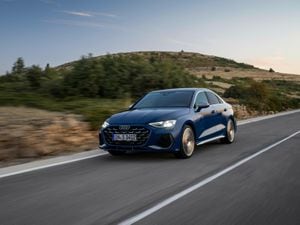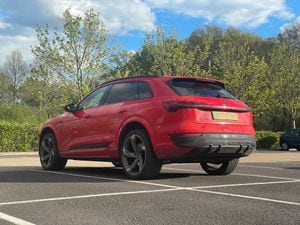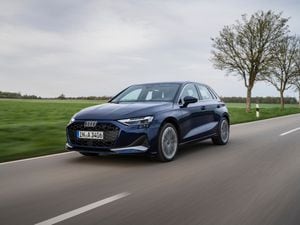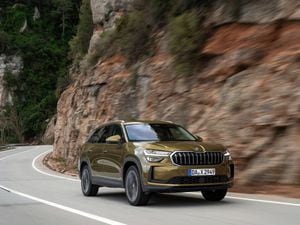UK Drive: Revamped Renault Captur takes on a multitude of rivals
The Captur is Renault’s smallest crossover. With so many rivals on the market, can it compete? Jack Evans finds out
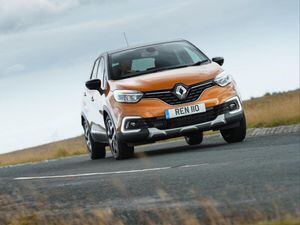
What is it?
The compact Renault Captur has been around for a little while now, and that’s why the French manufacturer has deemed it fit for an update. There’s good reason, too; the compact crossover segment is growing steadily by the day, and consumers are savvier than ever – so any car not worth its salt will start faltering in the dealerships.

Though it’s based on the same platform as the Clio, the Captur is able to offer a touch more space than its hatchback cousin, along with that all-important bump in ride height so wanted by buyers today. Back in 2016 the Captur was Europe’s best-selling urban crossover, so it’s understandable why the changes aren’t ground-breaking.
What’s new?
Renault hasn’t messed with the Captur’s formula too much – this is a mid-life facelift, after all – which is why the changes to the exterior are blink-and-you’ll-miss-them subtle. You’ve got C-shaped LED daytime running lights up front (bringing it closer in line to the larger Kadjar) and there are LED lights at the rear too.

You’ve got a wider choice of alloy wheels to pick from as well, and there are redesigned kick plates in place to give the Captur a chunkier, more go-anywhere look.
What’s under the bonnet?
Powering our test car was a dinky 0.9-litre turbocharged three-cylinder petrol engine with 89bhp and 140Nm. Renault claims that it’ll power the Captur to 60mph in 12.9 seconds, and onwards to a 106mph top speed.
Sending power to the front wheels through a five-speed manual ‘box, it’ll return a claimed 52.3mpg combined, while emitting 122g/km CO2.

A diesel is available, again packing 89bhp, while there’s a more powerful petrol available too with just shy of 150bhp. It’s the only the latter powertrain that’s available with an automatic gearbox, should that be something you’re after. It means there’s a pretty decent spread of engine options available, providing something for nearly everyone.
What’s it like to drive?
Take one glance at the engine specs for the Captur and it’s immediately obvious that it’s not going to set the tarmac alight. Though the forward progression isn’t swift by anyone’s standards, there’s enough puff to merge on to a motorway safely – though once you’re there, you’ll need to drop a gear when overtaking.

The steering is light and not all that accurate, and it can make the car feel a touch busy at speed. Cruise control helps to make longer journeys a little less tiresome than they otherwise would be, but the placement of the on/off switch in the lower part of the car next to the seat is odd, particularly when the control for the system’s speed is on the steering wheel.
How does it look?
The Captur is quite unassuming in its style. It’s not boring, and neither is it outlandish. The C-shape daytime running lights help give it a touch more presence, but because of its compact size and rounded appearance, it just doesn’t make much of an impression. Chrome accents around the car do elevate it slightly, making it appear ever-so-slightly more premium.

GT-Line cars, like our test vehicle, get 17-inch alloy wheels, contrast roof and door mirrors, and grey front and rear skid plates too for a little bit of that faux-SUV style.
What’s it like inside?
The interior of the Captur reflects the car’s exterior look. Everything works and is logically placed (save for the previously mentioned cruise control button, of course), but there’s nothing to stir the imagination nor leave you to gasp in wonder. There are harder plastics to be found throughout the cabin, but given the car’s just-under-£20,000 price tag this is to be expected.

Interior space is decent enough, and there’s a good amount of headroom available for driver and passengers – though legroom is a touch tight for adults riding in the back.
Boot space is reasonable, with 377 litres on offer with all seats in place. You can slide the rear seats forward to offer up more boot space – and there’s 455 litres to play with when you do. The rear bench also folds 60:40 to create an even larger load area.
What’s the spec like?
Our test car came in GT Line specification, and this sees the Captur fitted with all manner of standard equipment. There are a variety of chrome elements applied to areas in the cabin, while a ‘Premium Pack’ sees aluminium pedals and sunglasses storage added.

Part leather upholstery helps to lift the overall feel of the car’s cabin, too. The Captur also benefits from Renault’s R-Link infotainment system, which uses a seven-inch colour touchscreen to control aspects such as satellite navigation (a TomTom-sourced system) and smartphone integration. It’s not a terrible system, but it does lack the level of clarity and ease-of-use that we’ve come to expect from more modern systems.
You also get front and rear parking sensors which, despite being fitted to a relatively compact car, make parking the Captur a little easier.
Verdict
With such a wide array of compact crossovers on the market, it could be easy to simply dismiss the Captur. However, thanks to decent levels of standard equipment and a low list price, it could be a good option for those who want a value-for-money runaround. Yes, some interior quality aspects leave much to be desired, but an efficient range of engines and well-sized boot mean the Captur could prove to be a reliable choice for many.

